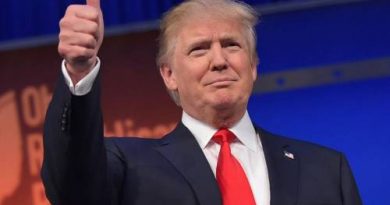National’s Battle to Win Back the Boardroom
Politics
He’s dragged sleds to the North and South Poles. So Andrew Bayly is perplexed why people are surprised at his rapid ascent in politics. He argues he’s the right person to help National re-engage New Zealanders.
“In the lead-up to the election, we weren’t active enough.”
That’s the view of Andrew Bayly, in explaining how the National Party lost the boardroom ahead of its significant defeat in October.
The party that trades off its reputation of sound economic management suffered a blow to its credibility during the $4 billion economic hole debacle.
For Jonathan Milne’s summer briefing on the sectors that don’t stop, sign up here for the 3 Things newsletter.

The MP of six years says he’s well-placed to help rebuild those relationships with businesspeople.
Bayly’s 25 years in the business sector, before coming into politics means he has thousands of personal contacts.
And while Bayly says he believes National released some good economic policies, the party didn’t engage with the public enough.
Now the party needs new policies, which are responsive to people’s needs, and relevant to the current economic climate and sentiment. “I’m sitting here, looking forward to re-engaging with a lot of business owners and business people … It’s quite nice going back and re-engaging.
But Bayly knows National can’t rely on business alone.
“We have got to make sure we appeal to a large swag of New Zealanders and that means talking to a large swag of New Zealanders, and actually understanding what’s driving them and what’s important to them,” he says.
“And making sure we get our message to them once we understand what they want and what we should be doing.”
“I don’t know why it’s quite so surprising to some.”
Bayly experienced a monumental climb in the ranks following the last election – from 17th to third.
He now sits just behind leader Judith Collins and new deputy leader Shane Reti.
As well, he holds the revenue portfolio (what National currently calls shadow treasurer).
Following the election, the decision was made to split the old finance role into two, with Bayly taking revenue and Michael Woodhouse taking on finance.
Bayly is also responsible for infrastructure and statistics. And he will remain a member of Parliament’s Finance and Expenditure Select Committee, a position he’s held for the past six years.
These areas seem like a natural fit, and Bayly describes it as his “home territory” after a career in the finance sector. “I don’t know why it’s quite so surprising to some,” he says.
After training as an accountant, and very briefly putting his qualification to use, Bayly moved to the merchant bank Southpac. He worked in money markets, then mergers and acquisitions, living in New Zealand and London.
After 10 years, Bayly and his brother set up their own merchant bank, called Cranleigh Strategic, now Cranleigh Partners. The business has offices in New Zealand, Australia and Singapore.
Bayly says if he didn’t win the attractive National stronghold seat of Hunua in 2014 (which has been replaced by Port Waikato), he and his wife would now likely live in Singapore.
Those years in merchant banking brought Bayly close to infrastructure projects involving rail, roads and shipping.
Bayly says he doesn’t miss the cut and thrust of his former life securing major mergers and acquisitions.
“After all that time, it took me only four months to get over my previous career.”
He has relished the opportunity to learn new skills, as a small fish in a big pond. And his lack of household name recognition probably speaks to this lack of ego.
“You start at the bottom, and you start learning from the bottom. You’ve just got to swallow your pride and get on with it.”

Since arriving in Wellington, Bayly has sat on the Finance and Expenditure committee for the length of his Parliamentary career, chaired the Local Government and Environment committee, and has held the portfolios of opposition spokesperson for state-owned enterprises, building and construction, revenue, small business, commerce and associate finance.
He’s a diligent politician, and enjoys the varied aspects of political life: from being an active electorate MP (and eventually a member of the community), to speaking in the House, and becoming a well-informed select committee member.
Bayly also enjoys the art of policy formation and creating the party’s strategic direction.
But in order for a party to create effective and cohesive policies, MPs need to work as a team. This is something Bayly says National did not do well in the run-up to the 2020 election.
“I actually think New Zealand’s in a pretty worrying place … I think we’ve got a few issues coming up.”
This lack of teamwork culminated in an unwanted and damaging distraction, just days out from the election.
When Collins’ announced a local government inquiry on the fly, during one of the leaders’ debates, the party’s spokesperson took exception and sent an email calling out Collins’ “incredibly poor form” and “poor culture”.
The email was leaked, and the story became bigger than Collins bypassing former local government spokesperson (and now former MP) Denise Lee. Instead, it became about a divided caucus and a leader who rules by decree.
If National wants to build back stronger, Bayly says MPs need to work together. And for the finance team, it’s crucial they get it right from the offset.
“I actually think New Zealand’s in a pretty worrying place,” he says. “It’s fine at the moment, but where we’re headed, I’m not so sure. I think we’ve got a few issues coming up.”
Specifically, Bayly is referring to New Zealand’s borrowing versus spending, and debt-to-GDP ratio.
Prior to Covid-19, the Government was challenged for not spending enough on overdue, job-creating infrastructure projects. Obviously, things have changed since then.
And while Bayly agrees the $50 billion in Covid-19 stimulus needed to be spent to help people and businesses through the worst of the Covid recession, he thinks it now puts New Zealand in a precarious position.
“I think, suddenly, we’re going to wake up and work out how much debt we’ve got, and it’s going to be massive.”
Bayly points to the high-level of state spending the Government has locked in for the upcoming years.
“I’m not saying don’t spend money, I’m saying we need to spend money very wisely.”
The problem is finding which work programmes get the cut when New Zealand has an issue with historic underinvestment in core areas of infrastructure – something Bayly doesn’t elaborate on.
Of course, this more orthodox belief is countered by the left, which thinks continued investment is needed to help the country recover from the recession. Covid-19 has clearly highlighted the underinvestment in areas like health and housing.
But Bayly says the levels of debt, and the idea that the country needs to borrow money just to service its interest, is worrying.
Until now, most people have been focusing on the health crisis, but within the next six months he believes Kiwis will become increasingly concerned about the economic situation.
Come the first provisional tax payments of the new year, and the effect of a summer without international tourists, and people will start to realise things aren’t as good as they might have seemed, he says.
And it’s not just mounting debt, it’s also the crippling cost of living, and the high number of people on jobseeker support.
“It’s our job to make people realise, because I think, suddenly, we’re going to wake up and work out how much debt we’ve got, and it’s going to be massive.”

Bayly will be raring to go when politics reawakens in the new year, but until then he’ll be taking a break.
The intrepid traveller was supposed to be spending his summer with one of his sons riding a camel from Morocco, through the Sahara Desert, down to Timbuktu – following the old Salt Route.
His planned trip atop a camel might sound outlandish, but for Bayly, it’s par for the course.
Each of his sons has been able to choose an adventure, and this has seen Bayly follow the trail blazed by T E Lawrence through the Middle East during World War I, and travel to Antarctica where he scaled the continent’s highest mountain.
Bayly has also dragged sleds to the South Pole and the North Pole to raise money for conservation, he’s run marathons, is a fellow of the Royal Geographical Society, and has served in the New Zealand and British armies.
His Wikipedia entry is littered with fascinating facts, and this all seems to fit, given the 58-year-old is known around the traps as a person with interesting, and unexpected, stories.
But thanks to Covid-19, Bayly won’t be adventuring to a far-flung corner of the earth this summer. Instead, he’s been at the beach like the rest of the country.

